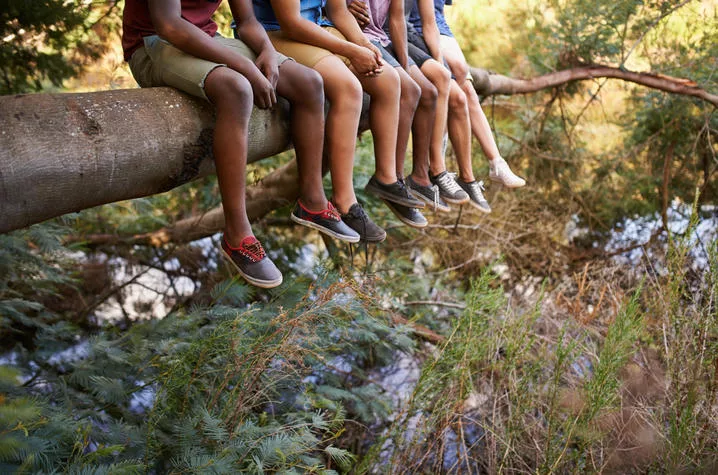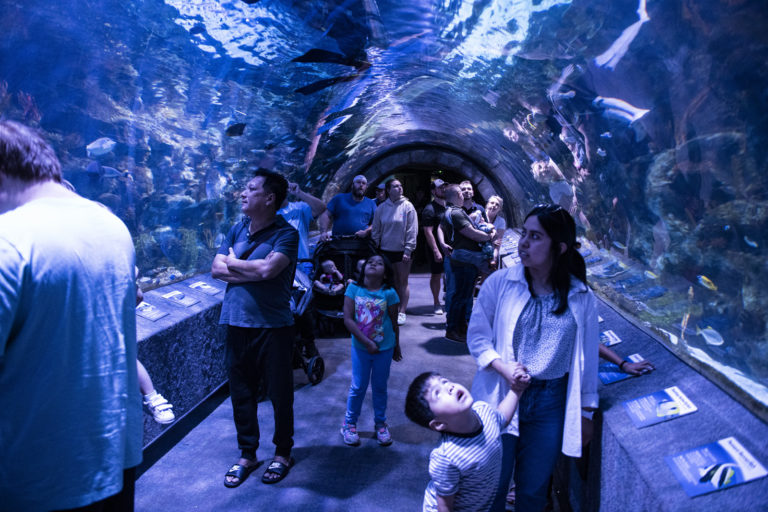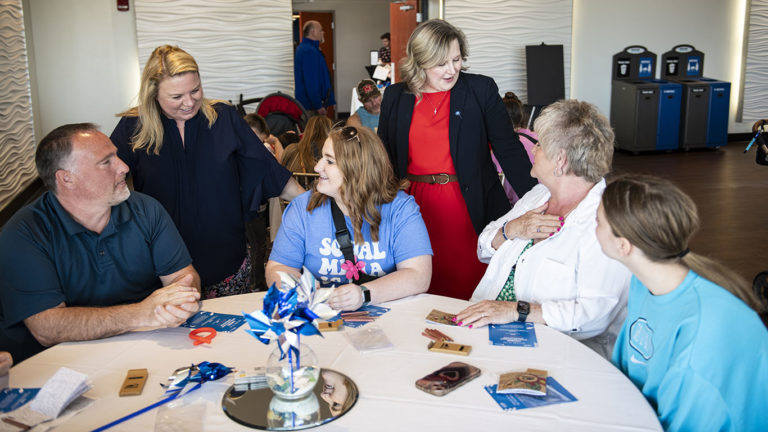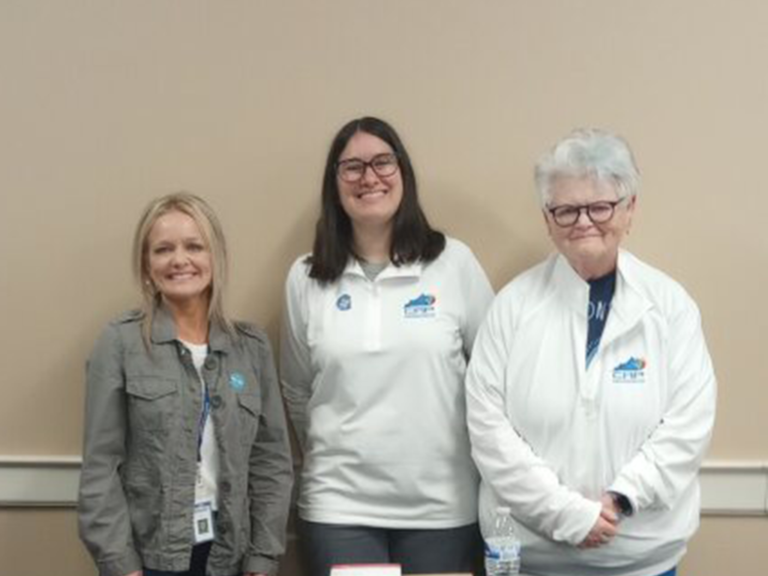LEXINGTON, Ky. — The University of Kentucky College of Social Work (CoSW), alongside the Martin-Gatton College of Agriculture, Food and Environment (Martin-Gatton CAFE) and UK Cooperative Extension Service are working together to provide social, emotional, and behavioral support to 4-H campers.
The 4-H Camp Behavioral Health Fellow Program, launched in 2022, focuses on recruiting and training qualified behavioral health professionals and strengthening the ability to effectively address youth health needs at 4-H Summer Camps. This year, the program welcomed five new fellows from CoSW, with at least one fellow placed at each of the four 4-H camping facilities. 4-H currently serves over 13,000 individuals from all 120 counties in Kentucky.
According to the Centers for Disease Control and Prevention, more than 36 percent of adolescents reported persistent feelings of sadness or hopelessness in 2019. Research indicates that camps can assist youth in building social skills, creating supportive networks, and establishing positive connections with positive adults.
“Adolescents are increasingly facing mental and behavioral health challenges. Whilst the camp experiences can help to address and assuage the consequences of these challenges, camps must be equipped to deal with these ever-changing needs,” said Dr. Jay Miller, dean in the College of Social Work (CoSW). “The 4-H Camp Behavioral Health Fellowship Program seeks to do just that.”
Ryley Butler Modaff, a CoSW graduate student and the program’s inaugural fellow, has been instrumental in informing and executing program strategies during her first year with the program.
“I’ve worked with and helped young people who had mental health issues so they could continue with their camping experience,” said Butler Modaff, CoSW graduate student. “I think the program can really help youth positively view behavioral health.”
As part of the 4-H Fellowship Program, fellows receive tuition support, unique cohort-based experiential learning opportunities, and innovative training experiences.
Of course, without the unique partnership between CoSW, Martin-Gatton CAFE, UK Cooperative Extension, this opportunity would not be possible.
“These partnerships are essential in addressing the needs of and young people and creating unique employment pathways for students interested in mental and behavioral health,” explained Meagan Lederman, assistant director of strategic operations and experiential learning partnerships at the CoSW.
The fellowship program is part of CoSW’s Corp Collab (C2) and UK Engage. C2, which is housed in CoSW, seeks to leverage creative partnership models to prepare dynamic workforce pipelines. UK Engage, led by Nancy Cox, vice president for land-grant engagement and Martin-Gatton CAFE dean, identifies strategies and priorities for enhancing land-grant engagement across the campus and in Kentucky communities.
For more information on the 4-H Camp Behavioral Health Program, contact Meagan Lederman at meagan.lederman@uku.edu.






